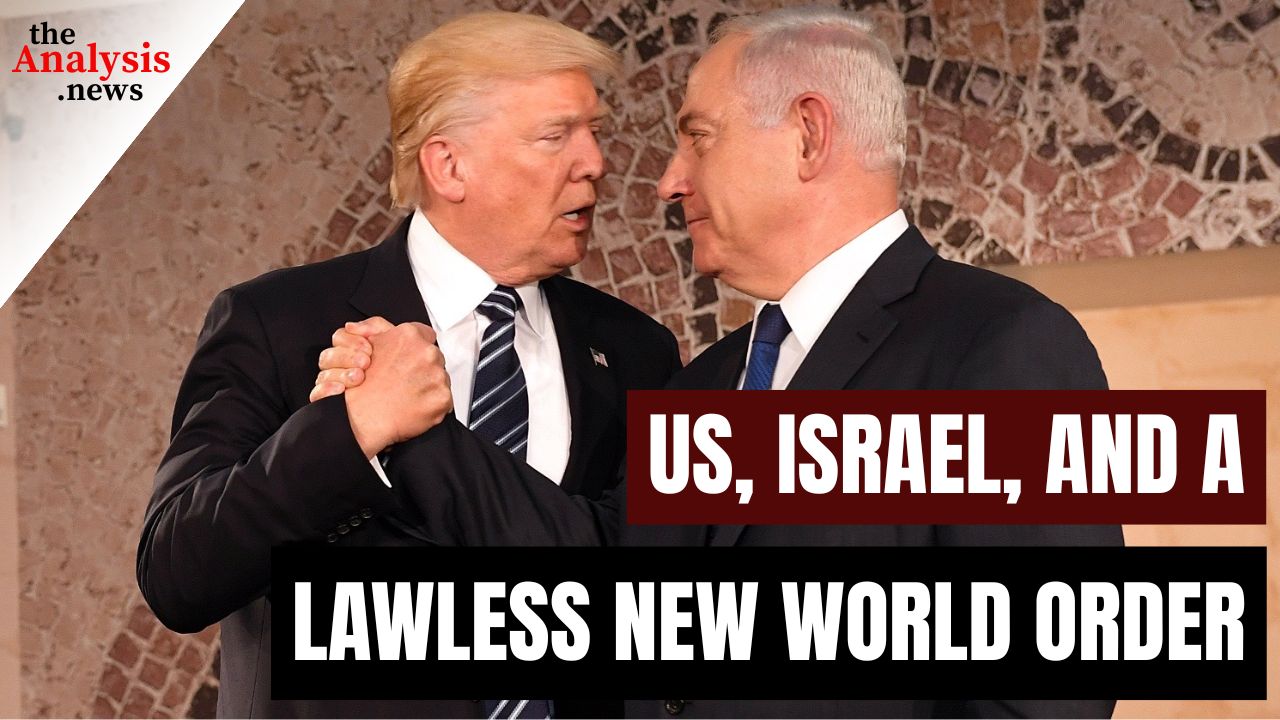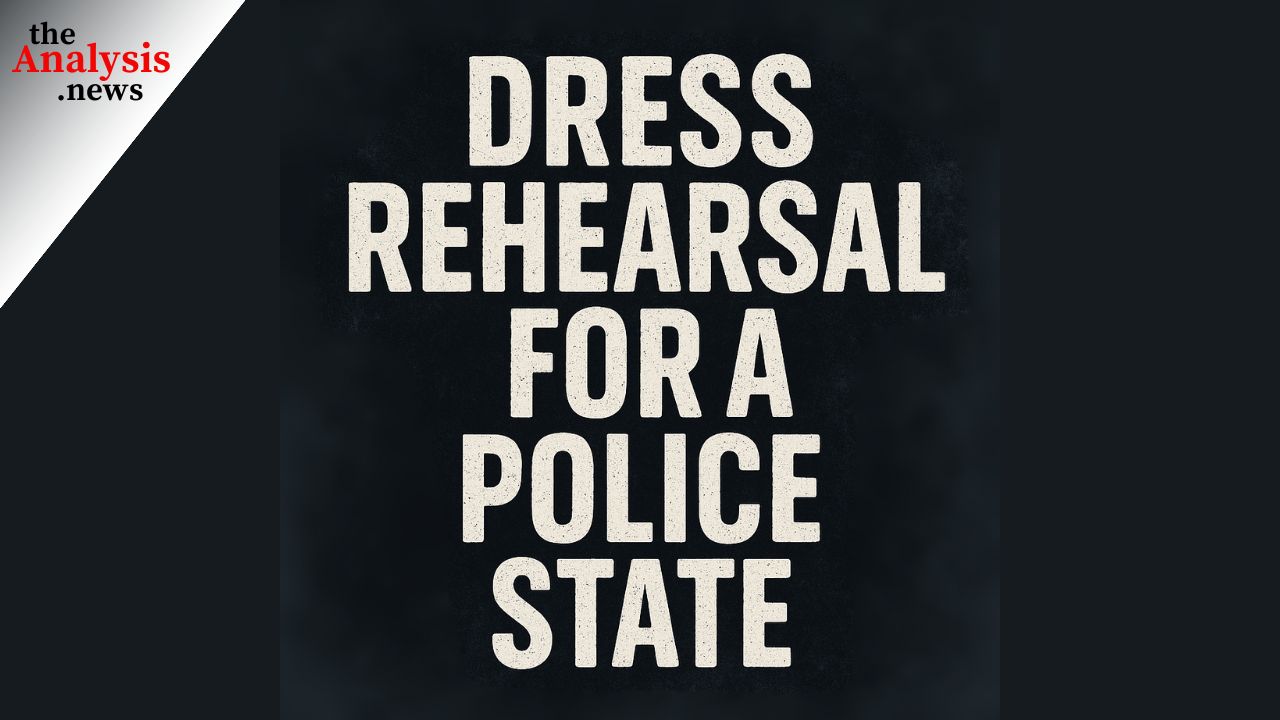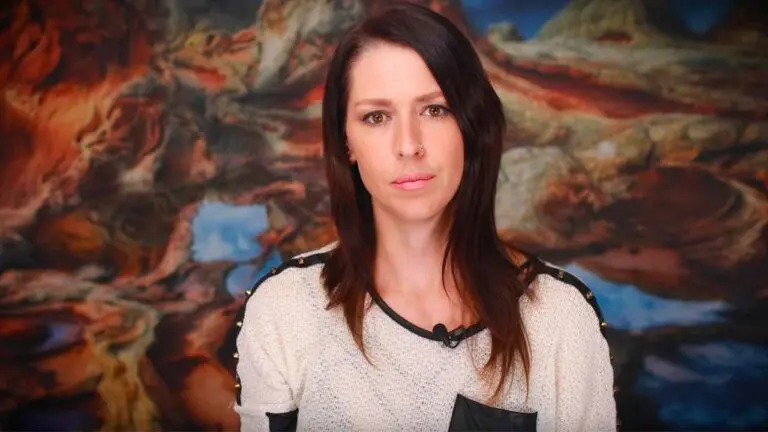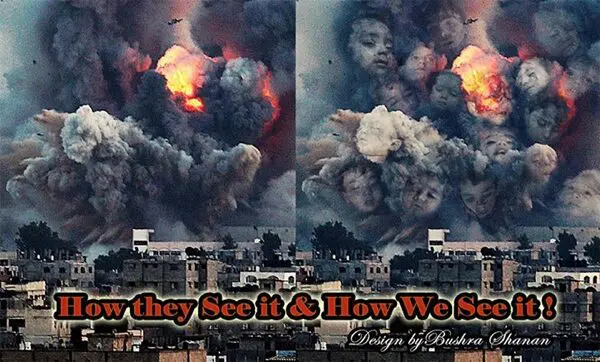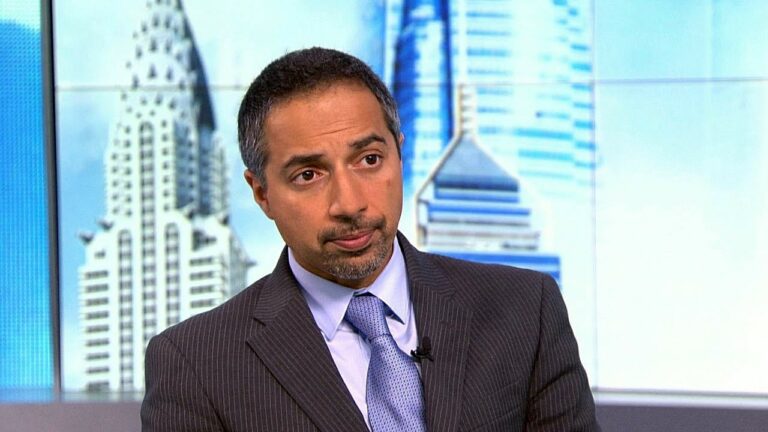In part two, historian and genocide scholar Omer Bartov discusses the U.S.’ gross rejection of numerous human rights organizations’ reports substantiating Israel’s genocide against Palestinians, as well as France’s comical rebuttal of the ICC arrest warrants for Israeli Prime Minister Benjamin Netanyahu and former Defense Minister Yoav Gallant. Bartov contends that the West’s dangerous sabotage of international legal norms flies in the face of the very post-WWII edifice of international conventions established in response to the Nazi genocide of the Jews and designed to prevent state actors from committing such atrocities. He also discusses Trump’s victory, highlighting Biden/Harris’ Middle East policy as a thorn in the side of the Democratic Party, which greatly alienated young voters.
Israel’s Elimination of Palestinians from Northern Gaza Continues with Impunity – Omer Bartov Pt. 1/2
Talia Baroncelli
Hi, you’re watching theAnalysis.news, and I’m Talia Baroncelli. This is part two of my discussion with Israeli American genocide scholar and historian Omer Bartov.
If you’ve been enjoying this content, we’d really appreciate it if you could give us a boost by going to our website, theAnalysis.news, you can hit the donate button at the top right corner of the screen. Make sure you’re on our mailing list; that way, all of our content gets sent straight to your inbox. Feel free to like and subscribe to the show on Spotify or other podcast streaming services such as Apple or on our YouTube channel. See you in a bit With Omer Bartov.
I’m very happy to be joined by Professor Omer Bartov. He is a Samuel Pisar Professor of Holocaust and Genocide Studies at Brown University in the United States. He has written several books, including Hitler’s Army, Germany’s War and the Holocaust: Disputed Histories, as well as a book published in the summer of 2023 called Genocide, the Holocaust and Israel-Palestine: First-Person History in Times of Crisis. Thank you very much for making time for us, Omer. It’s great to have you.
U.S. officials keep saying that based on their own assessments, the Israeli military is not, in fact, ethnically cleansing Palestinians from the north of the Gaza Strip and that they’re not engaged in an intentional starvation campaign. I think at this point, we’ve all been rolling our eyes at this 30-day letter which was written by Secretary of State Blinken and Defense Secretary Lloyd Austin, which gave Israel essentially a 30-day ultimatum to increase the number of trucks that was going into the north of Gaza, to ensure that would be up to at least 350 trucks a day. Since then there’s been this “word salad” by State Department officials saying that Israel has actually accomplished what was set out in the letter, that they’re making steps which will then lead to an improvement of the situation. But that’s clearly not what we’re seeing. What is your response to that?
Omer Bartov
Well, look, I would say, first of all, and not only about the operation in the north but from the very beginning, the U.S.— and I hate to say that— but the U.S. under Biden’s administration has been complicit entirely in Israeli actions in Gaza. It’s complicit first because it allowed it to happen. It’s complicit also because it facilitated it because it provided Israel and keeps providing Israel with an endless supply of munitions, without which Israel would not be able to continue the war that long. In fact, not more than three weeks at a time. It’s now releasing more arms because of the ceasefire in Lebanon. It’s complicit politically because it has given Israel cover in the Security Council.
First of all, the facts on the ground are that without constant American support on all levels, including this sort of “word salad,” the U.S. and, in that sense, also the U.S. taxpayer, are totally complicit in what Israel is doing, which is, as I see it, a genocidal operation that is extraordinary not only immorally because the U.S. has been involved in other immoral wars and operations in the past, but also because it’s completely against American national interests, and I would say against Israeli national interests. The U.S. has been supporting, not the state of Israel; it’s been supporting the most radical, right-wing, fascist, Jewish supremacist government that Israel’s ever had in trying to carry out something only equivalent to that the Nakba of 1948. In some ways, it’s even worse. Certainly, in numbers by now, it’s becoming even worse. It’s all reported; it’s all known—anybody who wants to see it can easily find the evidence. I have to say that I find it extraordinary that the U.S. government is acting this way.
There was an argument that this was because of domestic politics. Biden could not afford to do what he could have done and should have done in November or December 2023, which was to say to Netanyahu, “Okay, you have to stop now. I’m giving you two weeks, and if you don’t stop, you’re on your own, you won’t get any support,” and then everything would have ground to a halt. Maybe, at the time, there was thinking that if he doesn’t support Israel, then he’s going to lose the elections. Now he lost the elections anyway. Not he, but his replacement. But I think it was a terrible mistake to do that, even on the domestic politics front because, ultimately, had he done that then, by the time of the elections, arguably, he would have reaped the dividends from having done that. But instead, he allowed Israel to keep doing the same thing. Harris parroted exactly his own policies. While I don’t think that events in Gaza were the main reason for the Democrats losing the elections, I think it played a role in it.
Even on that very cynical domestic political level, it was a mistake. One asks oneself why? What sort of advisors did he have? What sort of people, who understand politics in Israel and the Middle East did he have? Who pushed him in that direction? I still don’t know who they were, but they have created a situation that has made the Middle East now the most unstable area in the world, precisely the kind of area that the United States wanted to disengage from so that it could pay attention to China, which has been, supposedly, the main goal of American politics now for decades.
Talia Baroncelli
I did see quite a few interviews with younger people in Queens, for example, and in the Bronx in New York. It didn’t seem some voters… some who are under 30, some of them did go over to Trump, but a lot of them actually just decided to sit out the election because they were upset about this genocidal war in Gaza. It doesn’t explain the Democrat’s defeat entirely, but I do think that it did play a role.
If you have Vice President Kamala Harris campaigning and saying that we’re going to continue these policies and that we essentially, like the U.S., don’t really give a damn about international norms and about people being massacred, then I think a lot of young people were just opposed to that. They sat it out, or they voted for Trump.
I think what’s going on in the Middle East in Israel’s genocidal war does really illustrate the way in which the U.S. and its allies have continued to erode international norms. We see this being played out now with the release of the ICC arrest warrants, which were initially requested in May and then stalled, and they were just released recently. It’s quite something to see. Certain countries say that implementing or executing these arrest warrants is something that is selective and up to the discretion of state parties to the Rome Statute, which is actually completely not the case. France saying that Netanyahu has immunity, which is completely ridiculous, and then going a step further, people like the lovely Senator of South Carolina, Lindsey Graham, saying that he’s going to ensure that countries or allies who decide to implement the ICC arrest warrants have their economies completely crushed and that they’ll sanction the ICC. What is your assessment of the way the international norms are now being completely emptied out?
Omer Bartov
First of all, just on the last question, I think you’re right. I think there was huge disenchantment not only among Arab Americans but also many young Americans and liberal Americans, young and not so young, who did not move over necessarily to Trump but who just didn’t vote. You can see it from the statistics. I can totally understand it. Obviously the result is catastrophic, but I can understand why people behaved in that way. It’s deeply troubling because it means that if you try to understand why America pursued that policy, knowing that American presidents have an enormous amount of power over Israeli policies, even just saying things has an enormous effect in Israel. Why they were acting in this way against their own interests is something that one has to look at, which elements are behind this kind of self-destructive policy, quite apart from being immoral and illegal on the regime of international law. So generally, what has happened now is that Israel’s actions, which have been carried out with total impunity over well over a year, when it is clear that even if one wants to argue whether it’s genocide or not genocide, clearly in severe breach of international humanitarian law, clearly war crimes and crimes against humanity being carried out on a daily basis, that Israel can get away with that means that the entire edifice of international law now is put into question.
And one has to remember where that comes from. This whole structure of international law as we know it now came into being after 1945, and it came into being in response to Nazi crimes in World War II. And the most visible prominent crime was the genocide of the Jews in the Holocaust. That was what triggered the Nuremberg Tribunal in 1945, where, for the first time, crimes against humanity became an international law. It triggered the Genocide Convention of 1948, which, for the first time, defined genocide in a convention to prevent and punish that crime. It created the 1949 Geneva Convention and all the other protocols thereafter on war crimes and, finally, the Rome Statute much later on.
All of this was done in response to the genocide of the Jews, of course, many other crimes committed by the Nazis. But that was the one event that was on everyone’s minds, including Raphael Lemkin, who defined genocide and then worked hard to have it become a UN Convention. All of this now is put into question, and any rogue state can say, “Hey, Israel got away with it.”
Why should we pay attention to that? So it’s dismantling the entire edifice that was created by the international community, but in which the United States played a huge role and which Israel was supposed to be as the country also created in 1948, the same year as the Genocide Convention was supposed to be the other answer to the Holocaust. One was the Genocide Convention, and the other was, okay, now the Jews should really finally have a state of their own because look what happened to them when they didn’t. To think of the irony that now Israel and the United States are playing a major role in dismantling this very same edifice is tragic.
Now, speaking of the ICC, so as you know, Israel, Russia, and Sudan are not members of the ICC. They haven’t signed on to the–
Talia Baroncelli
To the Rome Statute.
Omer Bartov
To the Rome Statute, that’s right. That, of course, does not mean that it cannot apply to them. As the ICC has argued rightly, Israel has been acting in occupied Palestinian territories, and therefore, actions in the territory of a state that has recognized the ICC can still be under the authority of the ICC. The response to that by the United States is not surprising because the United States has its own reasons, totally independent of Israel, not to recognize the ICC. The United States has troops stationed around the world, and any recognition of the ICC means that the ICC can find this or that general guilty of war crimes and arrest them. The U.S. has no interest at all in playing into that. The case of the Europeans, who are signatories, is more problematic. I will add that the U.S. was very happy when the ICC issued an arrest warrant against Putin. At that point, they thought the ICC was great, but when it’s against Netanyahu.
Talia Baroncelli
Yeah, they were coordinating and providing the ICC with their own intelligence and documentation to enable the strengthening of the ICC’s case against Putin.
Omer Bartov
Yeah, but that’s Putin, and now it’s Netanyahu. That’s a different
[inaudible 00:16:21], although there are many similarities between them, actually, and they like each other. Regarding the European states, it looks like France specifically, Macron specifically; that’s information that I’ve been reading, and it’s not open, of course, so I suspect it’s true. But I can’t say for sure that part of Israel’s agreement for a ceasefire in Lebanon, which was brokered by the U.S. and France, was that France said to Netanyahu, “You sign that, and we take you off the hook. You can fly to Paris, don’t worry. You can take Sara Netanyahu and have a good time in Paris,” which is what they love doing. So, it might have been a very cynical move on their part. One cannot imagine Netanyahu flying to Berlin and getting arrested by the German police. That’s simply inconceivable that it would happen. I suspect he won’t do it anyway because he’s a very cautious individual and wouldn’t want to dare them.
But, yes, you are seeing now a situation where European countries are all having a problem. The reason for that problem is very simple. The reason is that what the ICC did, and this was stated very nicely a couple of days ago. It was in Hebrew but by Michael Sfard, a civil rights lawyer in Israel, an amazing activist, and very smart in international law. He knows about it much more than I do. He was saying that the ICC did something extraordinarily brave, taking out arrest warrants against Netanyahu. Gallant was going against the biggest gorilla in the jungle because Israel is supported by the United States. The United States can basically destroy the ICC if it wishes to. It can deprive them of funds. It can make it irrelevant if it wishes to. But as he was saying, had it not moved at this point, and it waited a long time– the prosecutor was handed this brief in May, and we are now in November. It took a long time for the ICC to make up its mind, and it was talking only until May. Nothing about anything that happened after May. It took a long time to gather the courage to act. But it seems to have reached the conclusion that if it didn’t act, it would also become totally irrelevant. It was between a rock and a hard place, and it chose to do that.
It’s a very brave move. It threatens it as well as an institution. But as we said before, what is most threatened in all this is the entire regime of international law. The result of this can be international chaos. That is what I hope at least some policymakers in Europe and in the United States are aware of. Until now, the ICC played it safe. It only went against political leaders from Africa, from the Southern hemisphere. It didn’t touch people from the north, people who are hypothetically leaders of democratic, liberal, industrialized societies. Netanyahu is the first case. This will put the whole system to a very severe test.
Talia Baroncelli
I just wanted to get to a final point before we stop, and that is with regard to bringing this to an end. You did mention that Biden is so incredibly ideological that he’s so beholden to his donors as well and that he would not dare to oppose them. So obviously, those elite donors are not going to play a role in bringing any justice to the victims of this war, to people in the West Bank even, and in East Jerusalem. It’s maybe not even going to be the ICC because, of course, at some point, let’s hope at least that Netanyahu will be arrested, but it’s not going to be the ICC that will put an end to this war. So, would you say it’s maybe boycotting? We have seen an effect with various dock workers, for example, organizing across the globe and trying to essentially prevent companies such as Maersk, who are involved in shipping logistics, from transporting weapons to Israel. There are all sorts of initiatives that involve ships that go from Houston to New Jersey and then travel to Morocco or Spain. Spain has said that they won’t let those ships from Maersk dock. So, would you say that that is perhaps the only hope left for bringing Israel’s genocidal war to an end?
Omer Bartov
So look, first, I actually didn’t say that Biden was ideological or there was donor pressure on him, but I agree, I think there was donor pressure on him. I implied that. I didn’t say that directly. So I’ll say it directly.
Talia Baroncelli
Sorry, to clarify, the donors were not so concerned with actually winning. I guess Biden is so indebted to his donors that he would even risk losing the election than putting an end to what’s going on.
Omer Bartov
Yes, and I think donors were involved. Donors, big money. Not only donors but corporations and the makers of arms have had a field day since the beginning of the war and the Russian invasion of Ukraine. Since then, Ukraine and Israel have been making huge amounts of money and have a huge amount of political power, particularly in America, because in America, there’s not much of a distinction between money and politics. If you have money, you are powerful in politics. There are very few guardrails.
So I think, yes. I think the Democrats were beholden to donors and other types of money. I think that happened at universities, too. And that was part of the shutting down of student protests quite effectively by donor money, which is not clean money and which is ideologically motivated and financially and industrially motivated. So yes, I think so. And I think that it is true that Biden had an ideology also himself as a Zionist, as he says, whatever he means by that, he never quite clarified.
Now, how do we put this? How do we end this? No, I don’t think that what will end it would be a strike here and a strike there because countries like the U.S., Germany, and Britain have other ways of– if they want to ship large amounts of arms and munitions to Israel, they can do it.
It could be a gesture. It could make things more difficult. But no, I don’t think unless there is general outrage, which we haven’t seen enough of at all. I don’t think the American working class is particularly concerned with what’s happening in Gaza. It’s got its own concerns, and we saw that it felt betrayed by the Democrats and went over to Trump. So, I don’t think Gaza will end because of that. And that’s a whole other discussion about the nature of American politics.
What will end it? Well, now we’ll have a different administration coming in, and everybody’s waiting for it. Netanyahu is not going to do anything about Gaza before January 6. He’s waiting. Everybody’s waiting. Hamas is waiting as well. Everybody’s waiting. Saudi Arabia is waiting. Everybody’s waiting for the new administration, but nobody knows what he will do because Trump hasn’t said, and he probably doesn’t know yet.
So what will end it? I think, you know, I have a pretty dire scenario for how it will end. I suspect that the new administration coming in and here, I’m guessing, really, I think Trump will want to put an end to this, not because he cares about the Palestinians or, for that matter, the Jews, but because it costs a lot of money, it costs political capital, and he doesn’t want to be distracted by it.
But how do you end it quickly? So we know his plan for Ukraine is for Ukraine to give up a quarter of its territory, and that’ll end it, whether the Ukrainians accept it or not. Who knows? In this case, it would be that the Palestinians would give up. So he may agree to allow Israel to annex parts, at least of the West Bank and parts of Gaza, particularly the part that I was talking about, northern Gaza, and allow Israel to establish what, in practice but this time in Europe, would be an apartheid regime because Israel would annex territories with Palestinians living in them. They would no longer be under the facade of military rule, of occupation. They would now be directly under the sovereign rule of Israel. But Israel, of course, will not give them voting rights or any normal civil rights. And therefore, it would be an apartheid system.
Talia Baroncelli
It would be an annexation, essentially.
Omer Bartov
Yeah, an annexation of northern Gaza, at least, area C of the West Bank, and forcing some political leadership, at least for a while, among the rest of the Palestinians. And that might suffice, although I can’t say for sure, for him to strike a deal with Saudi Arabia and the Gulf states, which is what Biden was trying to do before October 7, which was what Trump was trying to do when he was president the last time.
Would that work? In some ways, it could work. It would mean, however, that Israel would become an apartheid state, full-blown. As a result of that, it would become even more isolated. What you were talking about before, strikes against it and all that would become a much more widespread sentiment. It would lose the support of growing numbers of its allies, West Europeans, and the American public. It would lose the support of growing numbers of Jews in the diaspora, in the U.S., in Britain, and in France because it would become an embarrassment. It would become increasingly violent within, in a kind of general violence, and it would lose any semblance of being a democracy. It’ll continue surviving like that for another decade or two, but eventually, it will become subject to more and more boycotts and more and more isolation, and it will implode at the end.
By then, Netanyahu will not be around, Trump won’t be around, and I won’t be around. I don’t know how it will work out. There are people today who are saying that is the only way that eventually there will be a solution to this thing. But it will be a solution, maybe a bi-national state or whatever state it would be, that would be accomplished only through a huge amount of bloodshed and suffering.
Talia Baroncelli
I’m not actually sure that the European countries that continue to support Israel would, in an even more worsened state of apartheid, would cut off their support because I think they have their own domestic reasons or ideologies for continuing to arm Israel. This ties into Islamophobia as well, and some of the logics behind their support for Israel, at least in the German case, for example, is largely tied to hatred of Muslims and of Arabs. So even then, unless it’s a completely different government, I could not see them isolating Israel. I guess we’ll have to wait and see. All right, Omer Bartov– sorry, go ahead.
Omer Bartov
I would just say not in the immediate future, of course, but I think in the long run, it’ll become very hard for Germany and for younger courts of Germans coming into German politics because the sentiment in Germany has been changing. Public opinion has been changing. It’s just not reflected sufficiently in the elites.
Talia Baroncelli
Right, exactly.
Omer Bartov
But I think it’ll become increasingly difficult if Israel becomes a de-Europe apartheid state to continue providing it with the same kind of support that it receives now.
Talia Baroncelli
Omer Bartov, Israeli American historian and genocide scholar, it’s been great talking to you as always. Thank you so much.
Omer Bartov
Thank you.
Talia Baroncelli
Thank you for watching theAnalysis.news. See you next time.
Podcast: Play in new window | Download | Embed
Subscribe Apple Podcasts | Spotify | Android | iHeartRadio | Blubrry | TuneIn | Deezer | RSS
Never miss another story
Subscribe to theAnalysis.news – Newsletter
Omer Bartov is an Israeli-American historian. He is the Samuel Pisar Professor of Holocaust and Genocide Studies at Brown University, where he has taught since 2000. Bartov is a historian of the Holocaust and is considered one of the world’s leading authorities on genocide.


